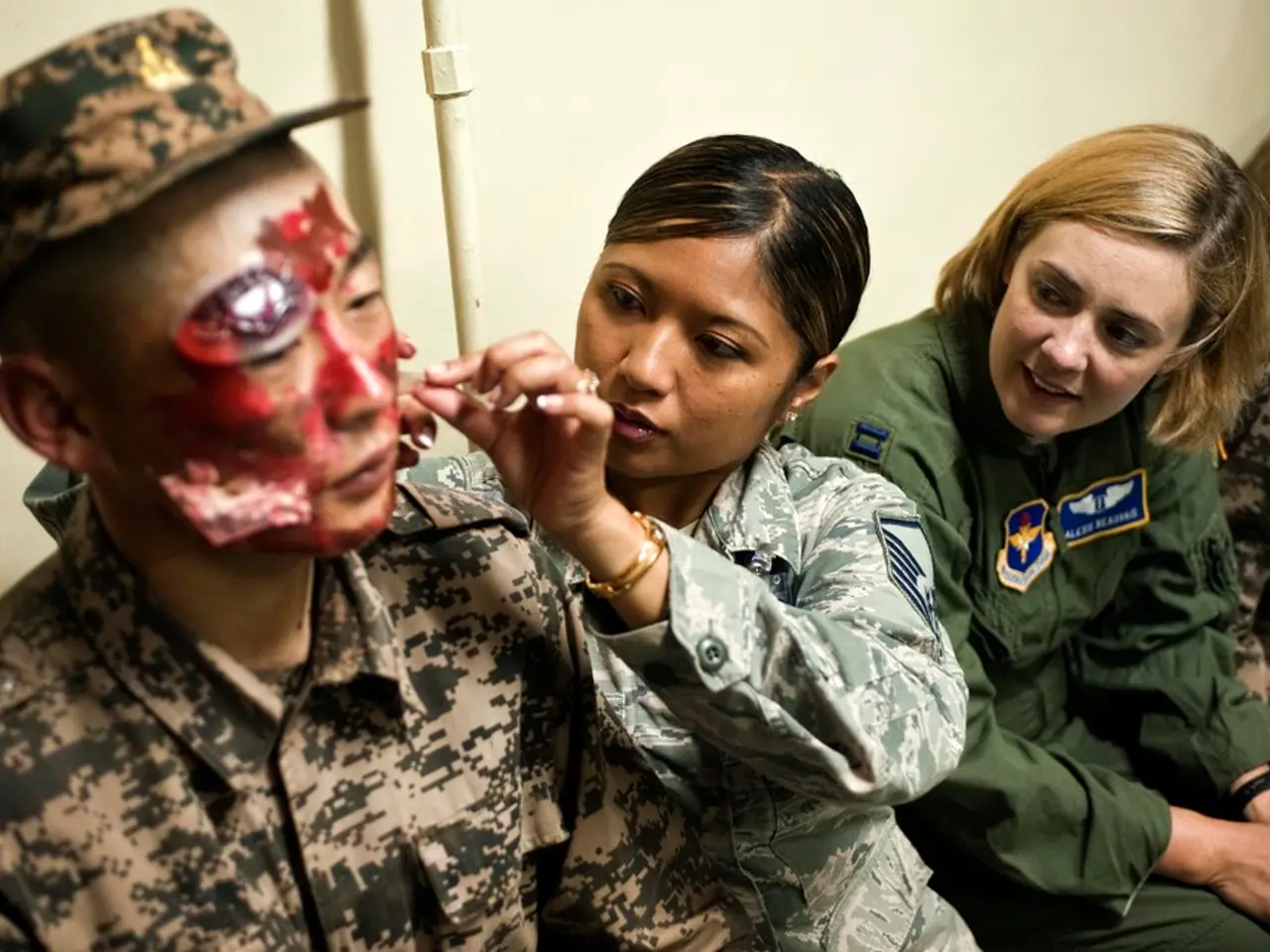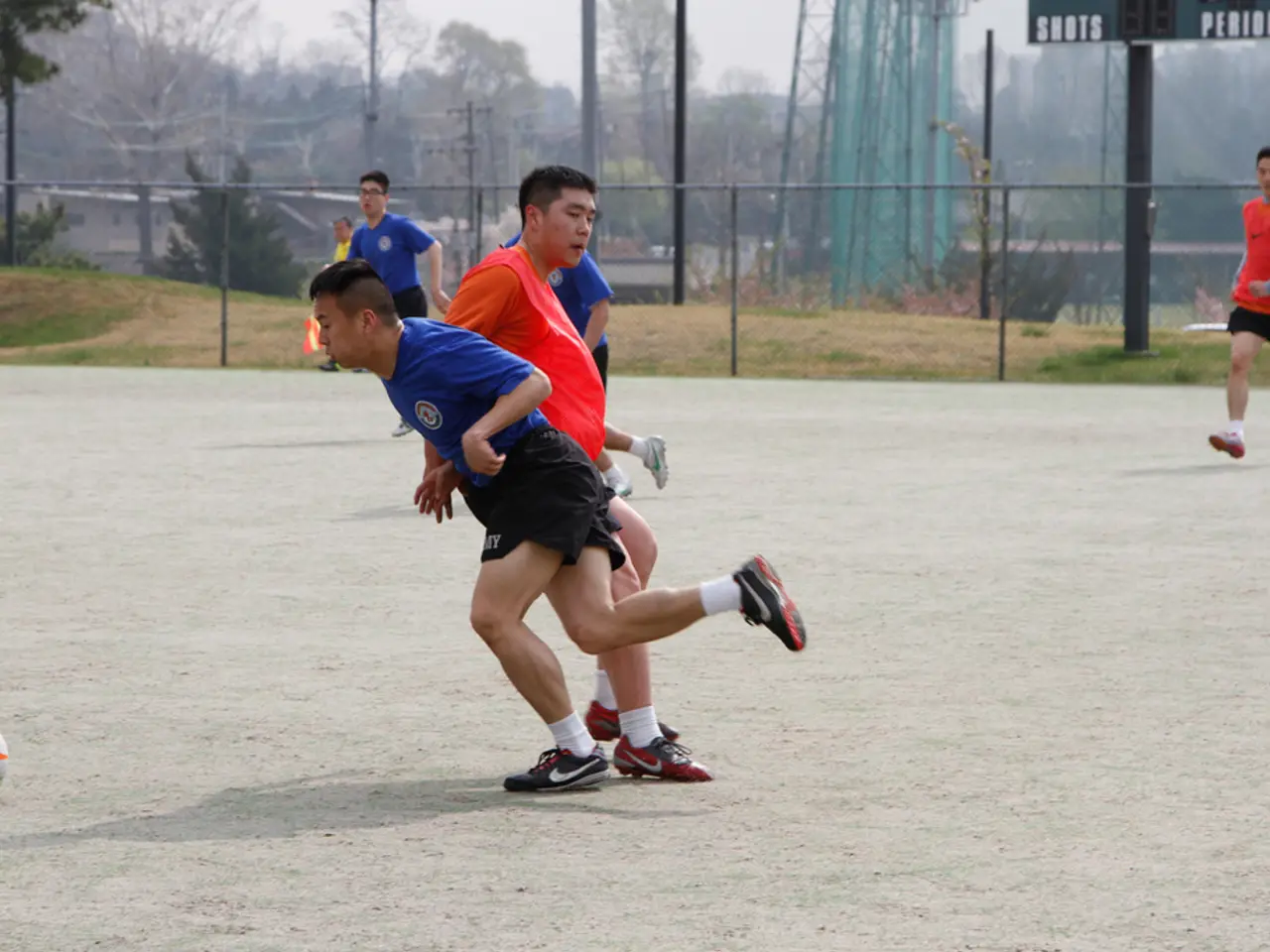"2022 Siege of Kyiv: Academic Discourse"
In a riveting episode of the Urban Warfare Project Podcast, John Spencer delves into the Battle of Kyiv, a significant event that marked a turning point in the ongoing conflict between Russia and Ukraine. The podcast, available on various platforms including Apple Podcasts, Stitcher, Spotify, TuneIn, and your favorite podcast app, offers an in-depth analysis of the battle.
The invasion began on 24 February 2022, with Russian military forces launching a multi-directional offensive on Kyiv from Belarus. The city, a primary strategic objective for Russia, was aimed to be quickly captured, potentially leading to a regime change. However, contrary to Russian expectations, Ukrainian defense proved unexpectedly resilient.
Ukrainian forces successfully repelled repeated Russian attacks on Kyiv through a combination of urban combat, local resistance, and efficient use of intelligence and anti-armor weapons. The Russian advance stalled by early April 2022, with supply issues, extended lines, strong Ukrainian defense, and effective use of small-unit tactics blunting the offensive.
The urban warfare environment in Kyiv presented unique challenges for the Russians. The battle underscored the importance of control over surrounding terrain, lines of communication, and logistical support in narrowly confined urban settings. Ukrainian forces maintained key defensive strongpoints, leveraging local knowledge and mobility to disrupt Russian command and control.
Spencer's lecture emphasizes the lessons learned from the Battle of Kyiv. Urban warfare requires adaptability, with forces prepared for highly decentralized combat and increased importance of small-unit leadership and initiative. The lecture highlights how the Kyiv fighting showcased that conventional assumptions about quick armored dominance in urban areas can fail.
Logistics and supply chains are also critical, as the Russian failure to keep their offensive supplied and maneuverable in Kyiv critically undermined their operation’s momentum. Transparent and effective communication within defending forces and with civilians enhances morale and operational coherence, as demonstrated by Kyiv's defense.
Modern urban combat heavily involves the use of combined arms but must be supported by accurate intelligence and electronic warfare capabilities to disrupt enemy coordination. The Battle of Kyiv serves as a case study in the challenges of urban warfare and the failure of a major conventional offensive in the modern age.
John Spencer, a guest speaker, visited Ukraine to give a lecture about the Battle of Kyiv. By 2 April, Ukraine's Ministry of Defense announced that Kyiv itself was secure and all areas in the entire Kyiv region that had been seized had been recaptured by Ukrainian forces. Over the next five weeks, Russian forces attempted to penetrate Kyiv to overthrow the democratically elected government, but to no avail.
The lecture by John Spencer was recorded by The Kyiv Independent and presented in full in an episode of the Urban Warfare Project Podcast. If you are interested in learning more about the Battle of Kyiv and its implications, we recommend subscribing to the Urban Warfare Project Podcast and leaving a review or giving it a rating if you are enjoying the podcast.
- The Battle of Kyiv, a significant event in the ongoing war-and-conflicts between Russia and Ukraine, demonstrated the importance of military defense in urban warfare, showcasing the Ukrainian forces' resilience against repeated Russian attacks and their ability to disrupt Russian command and control.
- John Spencer, a guest speaker, visited Ukraine to deliver a lecture on the Battle of Kyiv, emphasizing the lessons learned about urban warfare, such as the need for adaptability, small-unit leadership, and effective communication when facing modern urban combat.
- Politics and general-news sources, including The Kyiv Independent, have covered the Battle of Kyiv and its impacts, providing insights into the strategies used during urban warfare and the consequences of conflicts, highlighting the need for appropriate military, logistical, and intelligence preparations in such scenarios.








